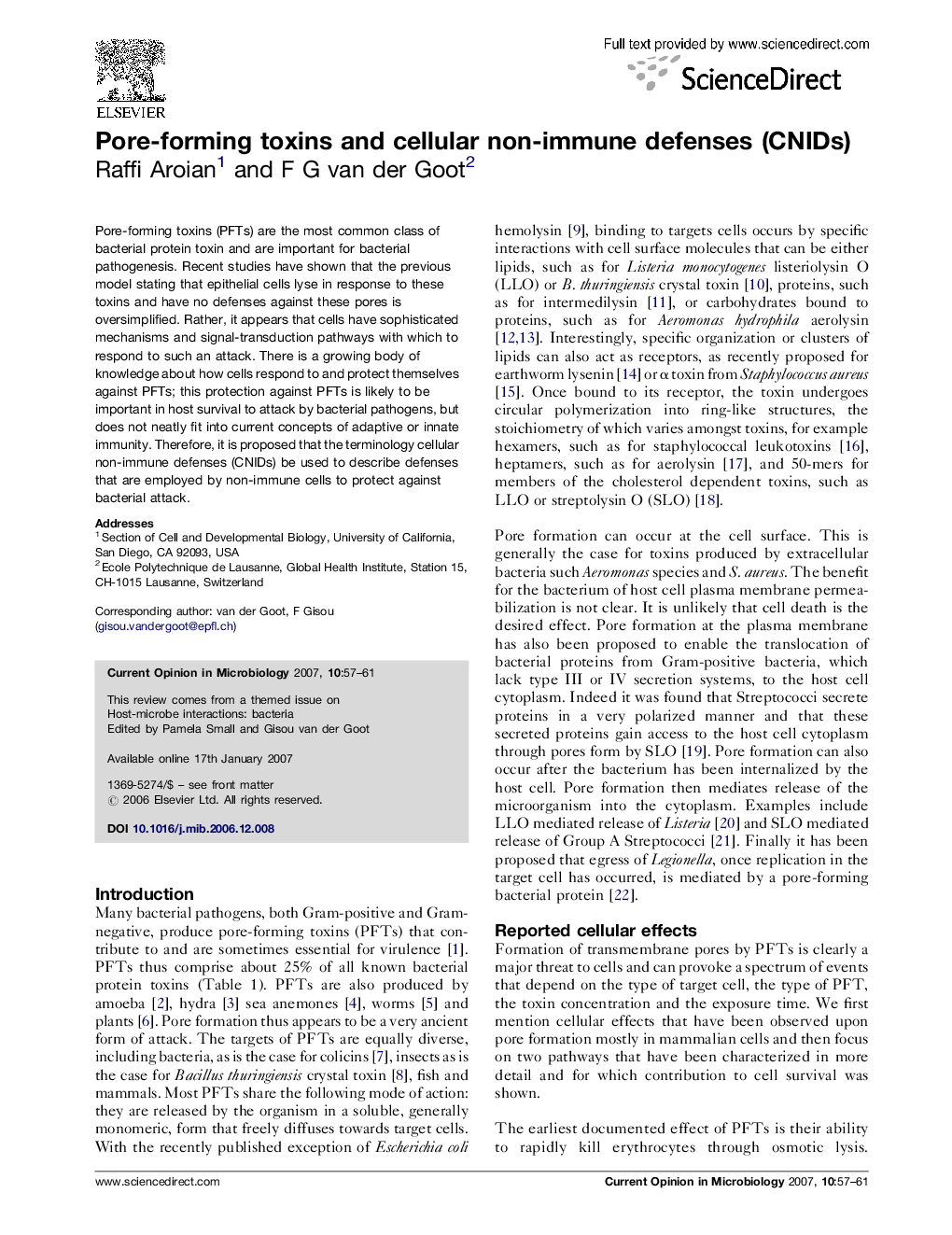| Article ID | Journal | Published Year | Pages | File Type |
|---|---|---|---|---|
| 3399631 | Current Opinion in Microbiology | 2007 | 5 Pages |
Pore-forming toxins (PFTs) are the most common class of bacterial protein toxin and are important for bacterial pathogenesis. Recent studies have shown that the previous model stating that epithelial cells lyse in response to these toxins and have no defenses against these pores is oversimplified. Rather, it appears that cells have sophisticated mechanisms and signal-transduction pathways with which to respond to such an attack. There is a growing body of knowledge about how cells respond to and protect themselves against PFTs; this protection against PFTs is likely to be important in host survival to attack by bacterial pathogens, but does not neatly fit into current concepts of adaptive or innate immunity. Therefore, it is proposed that the terminology cellular non-immune defenses (CNIDs) be used to describe defenses that are employed by non-immune cells to protect against bacterial attack.
